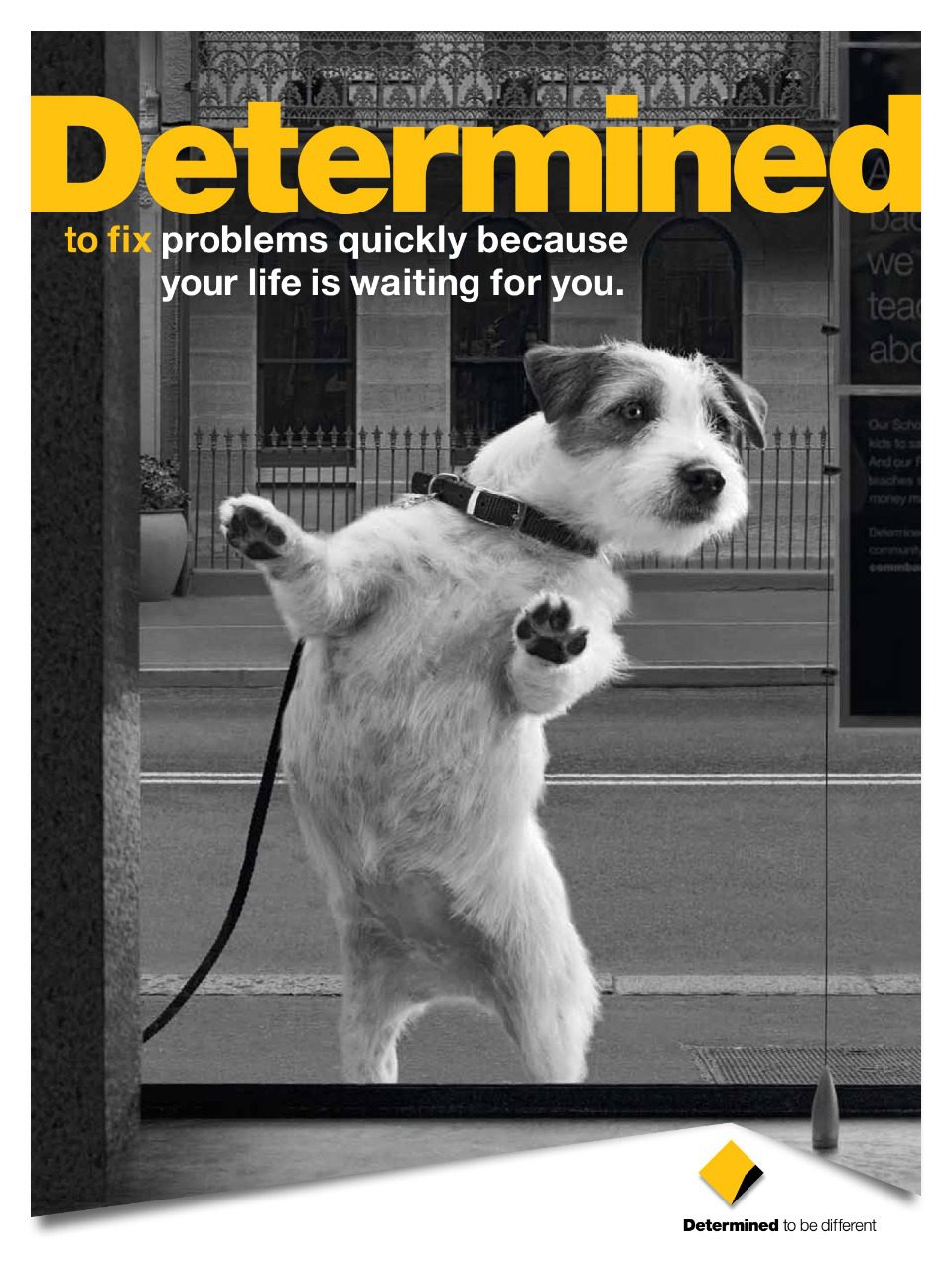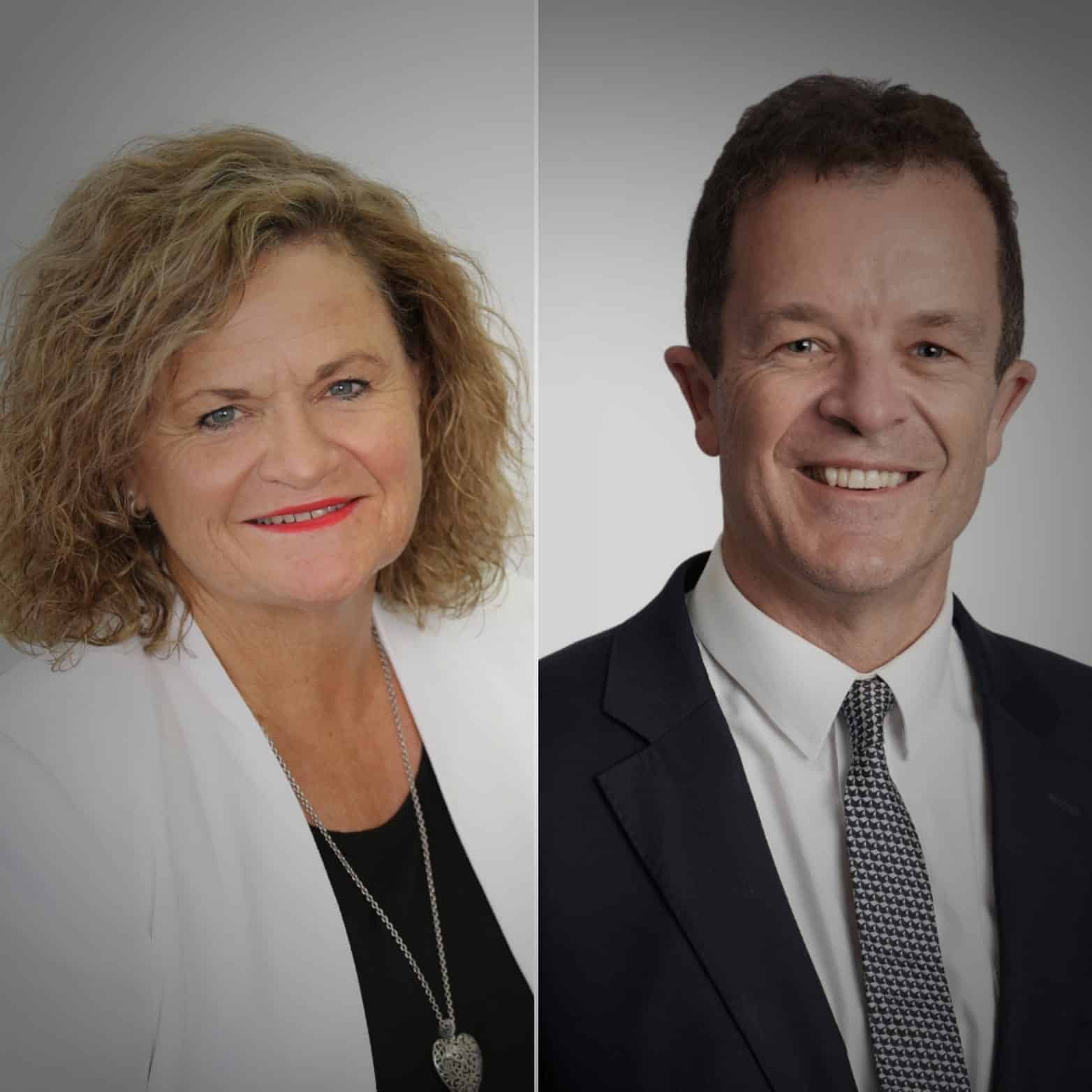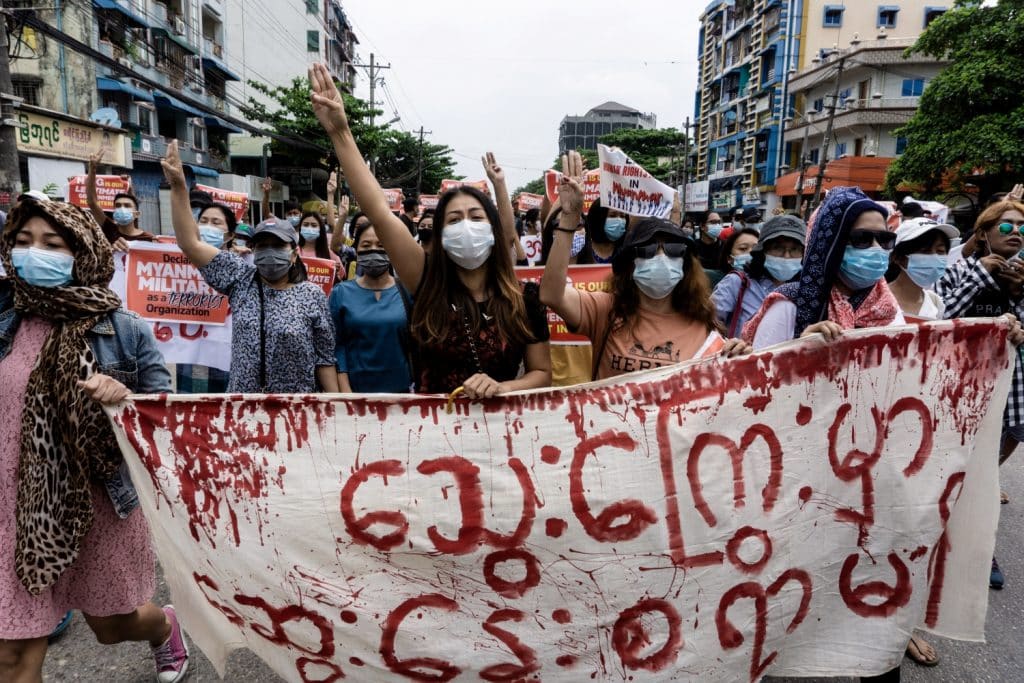CHRIS MINNS: First up, New South Wales road users, motorists in this state can expect an increase in tolls as a result of changes to CPI and inflation announced by the Commonwealth Government in the budget last night. At the end of the day, toll road companies can’t lose, motorists simply can’t win. The contracts that have been entered into by the NSW Government see that tolls on average motorists increase above the rate of inflation for many people that use toll roads right across this state. Under the WestConnex model, it’s a four per cent annual increase in the toll, unless inflation rises above four per cent, in which case, the toll rises above that. So at the end of the day, toll road companies can’t lose and motorists simply can’t win. We are now in a situation where when that ding goes off in your car, think about Dominic Perrottet and the Liberal Party because this is an example of toll mania and privatisation gone mad. You’re talking about a situation in Sydney where the people that live west of Parramatta with the increasing population have an inability to use or have access to good world class public transport assets, are forced to use toll roads and are increasingly paying huge amounts of money for the service. We know of people that are spending more than $5,000 a year in tolls simply to get to and from work. Now the NSW Government portrays this as a choice. I think they’re betraying the people of Western Sydney, at the end of the day toll mania has gone crazy in this state. The Cross City Tunnel is expected to increase by 5.3 per cent, the Eastern Distributor by 4.2 per cent, the Hills M2 by 5.2 per cent, the Lane Cove Tunnell 4.5 per cent, Westlink M7 capped at 5.1 per cent, the M5 Southwest is 4.8 per cent. Please remember that the NSW Liberals have made that a toll for the first time in its history. And NorthConnex is at 5.7 per cent. So we’re now in a situation where the 15 toll roads in Sydney, which is already the most tolled city on Earth, is digging deeper and deeper into the back pockets of the people, particularly of Western Sydney. And for many of them is saying we can’t afford it. The NSW Government will waive through toll increases for toll companies but fight tooth and nail to stop any kind of wage increase for the same people that have to pay tolls in this city. Something needs to be done about it. Now the NSW Government’s roads and crime legislation I want to speak about briefly before I hand over to John. We support this legislation. It’s not perfect, but it’s important for the state of New South Wales. We’re now in a situation where guerrilla tactics, protests right across the city or in parts of the city are disrupting millions of people getting to and from work. It’s also sapping public support for what is a bipartisan mainstream issue, which is action on climate change and action in support of environmental initiatives. This is the wrong thing to be doing. Gridlocked Sydney for three days in a row. And at the end of the day, how can you say to an owner driver that’s stuck at Port Botany losing thousands of dollars sitting there in an idle way, unable to recoup that money? That person is a real victim of the actions of these people and something needs to be done about it. Now, I would say to those people who are protesting this is not consistent with what is community support in favour of action on climate change. The end of the day, we are trying to build bipartisan consensus for this most important of issues, and it’s being undermined by these protests.
I’ll pass on to John.
JOHN GRAHAM: Thanks, Chris. John Graham, Shadow Minister for Roads. Firstly on the toll increases. This is remarkable to see these calls now going up higher than four per cent. It’s the first time this has really happened since 2013. That’s the last time that we saw this spike in inflation drive a potential spike in tolls, now happening across the toll roads across Sydney. Think about what’s going on. We know that cost of living is an issue. This is the cost of living rising – the rising cost of petrol driving up the rising cost of tolls for people across Sydney. It’s a vicious cycle. And motorists are copping it every which way. I also want to speak briefly about E toll charge errors that the government’s talked about. They’ve come clean about some of the details of this. At least 45,000 people have been charged the wrong amount for toll trips across Sydney. Transport for NSW referred to this as duplicate transactions. The minister in the house yesterday referred to this as people being charged twice. What we’ve discovered today, in an answer to a question the minister was asked on notice yesterday was, in fact, neither of those things are true. In fact, people are being charged time after time after time, in one case 37 times, in another case being charged $57,000. The minister’s answer now says this, approximately 3,600 E toll customers required multiple automatic top ups prior to the problem caused by the update being fixed. 3,600 people not being charged twice, but being charged multiple times. And the description that the agency is now using is not duplicate transactions, which is what the story was at the start of the week, they now are referring to what they call multiple duplicate transactions. Well, that is money being stolen out of these people’s account. We’re calling for it to be put back there, and for the government to tell us how did this happen? And will it happen again?
MINNS: We’re both happy to take questions.
JOURNALIST: Will use support the roads and crimes amendments bill as it stands in the upper house. Or are you going to amend it and if so what are you going [inaudible]
MINNS: Yeah, we’re looking at amendments in relation to industrial practices. Now, part of the amendments that Labor were proposing to move in the Legislative Assembly, were accepted by the government in the final draft that they presented to the Legislative Assembly, we want to make sure that industrial action and industrial protests and strikes or without and not included in the scope of the bill, that will be the nature of our amendments. We’re in the process of drafting them as we speak, we expect the government – we hope the government and the crossbench will support those amendments as, if you listen to the minister’s second reading speech, the purpose of the legislation did not include industrial disputation. We’re hopeful they support our amendments. But that’s the nature of our amendments. And that’s what we hope to move in the Legislative Council tonight.
JOURNALIST: What do you say to the Greens and to Alex Greenwich, who was effectively siding with the protesters over commuters.
MINNS: Well, look, I’d say it’s easy for him to say, his constituents aren’t affected by massive disruption affecting up to two million people in one of the – in the biggest city in Australia. I live in Southern Sydney. And when I drive to the city and go through the airport tunnel, particularly on rainy days, more often than not, there’s an accident. Sometimes there’s been a fatal accident. I couldn’t live with myself, if at the end of the day because of a protest, an ambulance or the fire department or first rescuers couldn’t get to the scene of a crime because protests had blocked that way. I’d ask those members to think about, for example, a pregnant person trying to get to a hospital who’s unable to do that because two thirds of the city has been locked down. i’d ask them to think about an owner driver who would go without any salary that day. I’d asked them to think about a casual worker who won’t get paid because potentially two thirds of the city had been locked down because of renegade guerrilla protests. Think about accidents. Think about first responders. Think about the gridlock that affects the city as a result of these protests, something needed to be done about it. Now, I’m not suggesting this bill is perfect. But it is appropriate given the scale of the protests and the nature of the chaos and dysfunction, that it’s – that it’s that’s happened to Sydney. Now, we will make sure that these amendments are in place and hope that they’re supported by the government so that it doesn’t affect workplaces. But that’s the nature and the scale of the problem we’re facing at the moment.
JOURNALIST: Did it go through caucus?
MINNS: It’s going to go through caucus this afternoon. It went through Shadow Cabinet this morning. That is as a result of the expedited nature of the legislation as moved by the NSW Government. In many respects, that’s regrettable because we’d like to have that process in place. But I did make an undertaking before the final vote has been voted on in the NSW Legislative Council. There’ll be a discussion in the NSW caucus. I expect the position of the leadership and the Shadow Cabinet to be carried at that time.
JOURNALIST: Just on the nurses Chris, there was a lot of anger against the government on the issue of patient staff ratio. Will you legislate – if you become Premier, will you legislate like that done in Victorian Queensland?
MINNS: Yeah, look, I’m not prepared to release our policies in relation to health and hospitals for the next election. I think the tax payers would expect us to scrutinise both the budget envelope and the full cost associated with a promise of that magnitude. That’s something that I will do. We will of course have discussions with the Nurses Federation and representatives of health workers right across New South Wales, but it’s important that we do this correctly and properly. I’d say to the NSW Government have productive talks with the Nurses Association, and the HSU and other worker representatives that are currently in the middle of industrial action at the moment. What we do know as a result of the Commonwealth budget is that inflation in Sydney is expected to be at 4.8 per cent – inflation across Australia is at 4.25 per cent, the largest and highest rate of CPI that the country has seen in many decades, the wage cap is at 2.5 per cent. So, as it stands today, frontline workers can expect a real wage cut as a result of the government’s own policy. Now, my suspicion is they’ll move in relation to that when the budget comes down in June, any day lost in industrial disputes between now and then could potentially be avoided if they’re up front with their own workforce.
Their issue today, [inaudible] that anger was about the legislation for staff patient ratios. And they were shouting out, get rid of Hazzard, get rid of Perrottet, vote you in but if you’re not willing to actually give them that commitment either, what are they meant to do?
MINNS: Well, look, at the end of the day, Clinton, they know that that’s the NSW Labor Party’s position. We’ve communicated that to them on many occasions, obviously, they wish that we would sign up for that proposal right now this minute. But it’s an expensive policy, and we need to make sure that it’s consistent both with the budget envelope, and the costings have been done. That’s my obligation to the New South Wales taxpayer. Now in relation to wages, it can help. We know that there are industrial disputes that extend beyond health into other sections of the New South Wales economy at the moment. If the government’s going to move in relation to that wages cap, they should be upfront with public servants in this state. I’ll make this point, there are thousands of more workers in the private sector that have their salaries and wages pegged to the equivalent position in the New South Wales public sector. We know that they’re missing out on about 34 per cent increase in pay compared to other sections of the private sector. So this isn’t just in relation to public sector workers. It’s not just in relation to public servants. We’re talking about the private sector that’s being hit particularly hard too. Is it any wonder the Reserve Bank is saying that wages need to increase in this state, in this country, in the state and city in particular? Because it’s just too expensive to pay a mortgage and get ahead.
JOURNALIST: What are you gonna do when Kate Faehremann’s bill comes to the upper house to legislate nurse to patient ratios, you gonna vote against it?
MINNS: Look, our position is straightforward. We want to make sure that we approach this thing in a diligent and calm manner that we look at the implications of the legislation, in particular, the financial burden, not just over the forward estimates, which is the next four years, but infinitum, forever. And because of that, it’s incumbent upon me as the alternative Premier of the state to do it in an appropriate and thorough way. Now, I understand that there’ll be people who insist that we support that policy initiative immediately. I can’t give that guarantee today.
JOURNALIST: You’ve got members standing out there holding signs saying ratios, you’ve got MPs next to the stage at a rally where they’re screaming ratios now. And you can’t give a commitment.
MINNS: Yeah, well, I’m being upfront about it. I mean, at the end of the day, you’re asking me to support nurse to patient ratios today, I can’t make that commitment. It’s a big policy initiative from either side of government, it needs to be done in a diligent and proper manner. We need to understand the budget envelope, we need to understand what the full budget implication of implementing that policy would be. It can’t be done today. And all I would say is the NSW Labor Party, the labour movement in general understands that’s the position of the leadership. I’m being transparent about that today. I’m not using weasel words, we have to make sure that we go through this process.
JOURNALIST: We’re now less than a year out from the election, and you don’t have a policy on that issue, do you have a tolls policy yet?
MINNS: I think that – I think the taxpayers would understand, given the volatile nature of receipts, the volatile nature of the economy, that it would be appropriate for us to look at the budget envelope when the budget is released, I think on the 22nd – 22nd or 23rd of June, midway through this year. That will give us the final accounts in relation to how much it is appropriate to spend over the forward estimates; how much recurrent funds we can expect to receive year in year out as far as the budgets concerned; and what we can play with in terms of policy initiatives for the state. Now, that’s the process in New South Wales. That is the natural disadvantage of the NSW Opposition, we don’t have access to the books until they release that budget. We expect that to come in June. We’re making preparations at the moment to try and get our head around the potential budget implications of proposed policies. But until we see that final number, I don’t think it would be appropriate to announce a multi billion dollar policy.
JOURNALIST: Have you got internal costings on, for instance, how much you’re going to cut tolls by, how much you get to increase public servants salaries by?
MINNS: We have discussions in relation to spending all the time. We try and get as much information as we possibly can from economics consultancies, from management consultancies from other states and other jurisdictions. One of the advantages of the Australian federation is that you can look at other jurisdictions that may have analogous situations to New South Wales. Often times it’s difficult though, because it’s not apples to apples, the health system in New South Wales is very different from the one in Victoria. It’s more centralised down there. We have more of a disaggregated health system, with major public hospitals located in regional centres, and Queensland, Queensland is different again. So we need to make sure that we do this in a diligent and calm manner. And I understand people will be disappointed about that. But that’s the position of the NSW Labor Party. We want to make sure we get it right.
JOURNALIST: Chris, can I ask about the Northern Rivers, there’s been some anger about the evacuation orders being lifted, the SES Commissioner’s defended what’s happened there. But he didn’t say that there was some infrastructure issues and their power was out at their SES station. So do you have a position on what’s going on there?
MINNS: Look, I am concerned that the evacuation was – order was given I understand about one o’clock in the afternoon. It was then lifted at 4.30 in the afternoon on the same day, – I might have those times slightly wrong. And then it was brought back in at 3:25am the following morning, but at each of those points, the river continued to rise. And I don’t know whether that was as a result of faulty gauges, or incorrect information that was handed to the SES. But we can’t have this situation repeated. And it needs to be clear, we need to have a clear line of authority in relation to issues these evacuation warnings. We need to make sure that the data and information that’s been received by those decision makers is accurate. One of the reasons why we want to have upper house inquiry that reports quickly not to assign blame, not to make sure that they’re scapegoats. But that we’re in a position when if we can make reforms or shine a spotlight on things that have gone wrong, it can be corrected before the next natural disaster hits. After all, we don’t want to repeat of what we’ve seen over the last 48 hours or over the last two months.
JOURNALIST: Is Resilience NSW up to the job?
MINNS: That’s something that we hope the parliamentary inquiry and other inquiries look closely at. Our major concern is and this has been repeated by the member for Lismore. And obviously I listened closely to her observances in relation to this. She believes that they need a single line of authority in relation to the cleanup and the recovery process. She’s finding it difficult to get responses from Resilience NSW, I’m reluctant to make an announcement today that a three quarter of a billion dollar agency isn’t up to the job. That’s what the parliamentary process is about. But I think if you speak speak to businesses and community leaders in Lismore or the Northern Rivers, they would say that the response so far has left a lot to be desired.
JOURNALIST: The member for Lismore was here two days ago and she said that Resilience NSW should get out of the way. So that’s a pretty clear indication to you that Resilience NSW isn’t worth its money.
MINNS: Yeah, well, that’s her, I guess there’s there’s separate issues – the immediate emergency response in Lismore, she believes should be run by Mal Lanyon and the emergency responders in NSW Police. We would be supportive of that. As to the long term future of Resilience NSW, I’d like to see the parliamentary inquiry report.
Thanks, everybody.


















